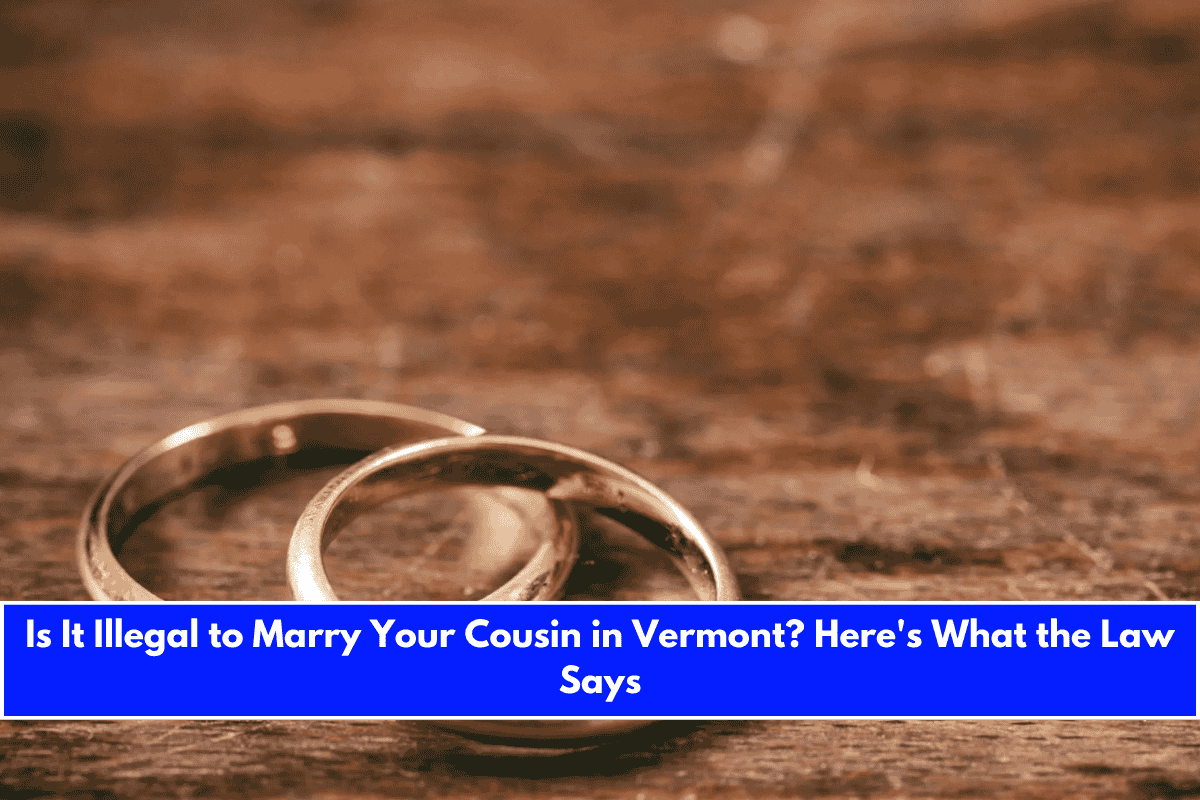No, it is not illegal to marry your first cousin in Vermont. Vermont law does not prohibit marriage between first cousins.
The state’s marriage statutes specifically ban marriage between closer relatives—such as parents and children, siblings, nieces or nephews, aunts or uncles—but first cousins are not included in the list of forbidden relationships.
What Relationships Are Prohibited?
According to Vermont law, you cannot marry the following relatives:
- Parent or grandparent
- Child or grandchild
- Sibling (brother or sister)
- Sibling’s child (niece or nephew)
- Parent’s sibling (aunt or uncle)
First cousins are not mentioned in this list, meaning such marriages are permitted.
Marriage License Process
- First cousins (and more distant cousins) can apply for a marriage license like any other couple.
- Neither party needs to be a Vermont resident to marry in the state.
- The marriage license is valid throughout Vermont, regardless of the county where it was issued.
Recognition in Other States
While Vermont allows first cousin marriage, some states do not recognize these unions if the couple moves or returns to a state where such marriages are prohibited. Always check the laws in your state of residence if you plan to relocate.
It is legal to marry your first cousin in Vermont. The law only prohibits marriage between closer blood relatives, and first cousin marriages are fully recognized and permitted in the state.
Sources:
- https://shellesimonlaw.com/first-cousin-marriage-under-us-immigration-law/
- https://www.newsweek.com/map-states-marry-cousin-tennessee-ban-1889727
- https://en.wikipedia.org/wiki/Cousin_marriage_law_in_the_United_States
- https://legislature.vermont.gov/statutes/section/15/001/00001a
- https://www.healthvermont.gov/sites/default/files/document/HSI-VR-GettingMarriedinVermont-FAQs-2023.pdf











Leave a Reply